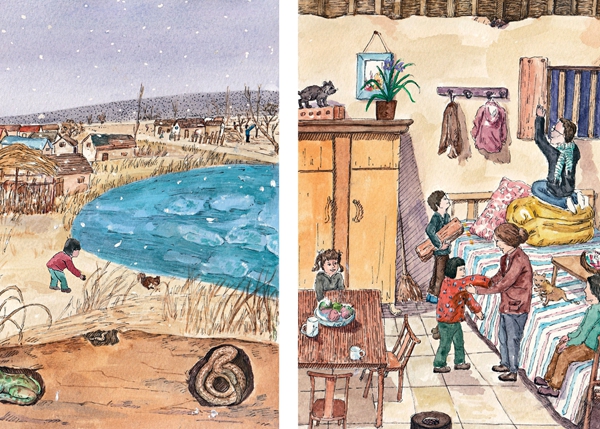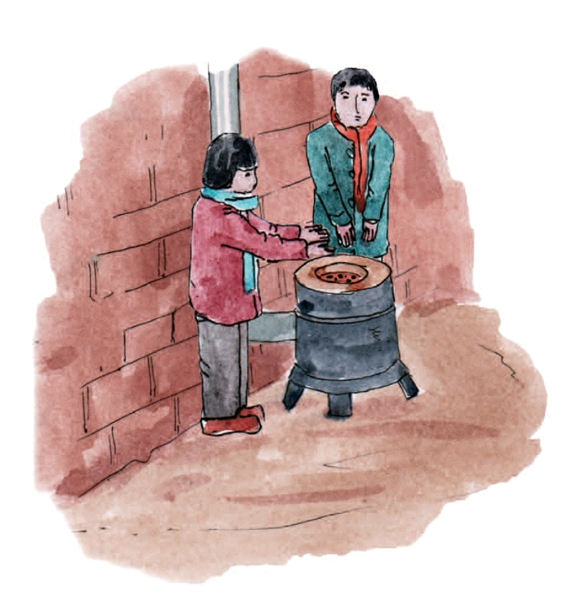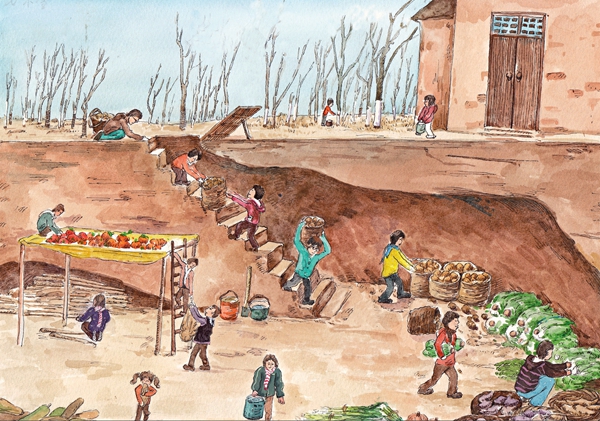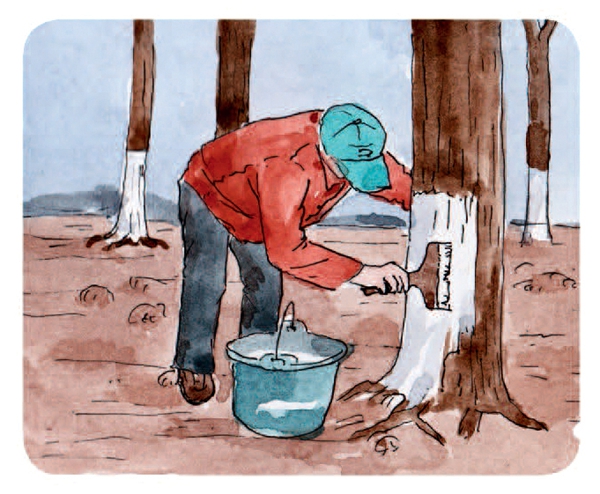小雪 Light Snow
Editor’s Note: The Beginning of Winter (Lidong) and Light Snow (Xiaoxue), two solar terms relating to early winter, are the 19th and 20th solar terms in the Chinese lunar calendar.
立冬 Beginning of Winter
The Beginning of Winter (Lidong) falls on November 7 this year on the Gregorian calendar. Across China, the wind starts to grow colder and the days shorter, as winter is officially here. As fall fades away, crops that were once ripe just a few months ago have already been aired and stored in warehouses. Many animals hide in caves, the natural shelters where they hibernate. For humans, though hibernation is unnecessary, the Chinese people do have a tradition of eating a big meal on this day, which is called budong. Eating well can help to strengthen our body and adapt to the winter’s cold.

Around the beginning of winter, rainfall in most places of China decreases sharply. The forms of precipitation vary, changing from rain into snow, sleet, and even hail. With the strengthening of cold air masses, the temperature plummets. As many of the heaters in buildings run on a coal-fueled centralized furnace, the smog in northern China during the winter is still noticeable. Therefore, the country is facilitating the process of replacing coal with clean energies.
As the weather grows colder, the earth in northern China freezes and ice begins to form on the surface of lakes and rivers. Early in the morning, the dew that once appeared on crops has now turned to frost, creating a white blanket over the land. Meanwhile, in the south of the country, it’s time to sow seeds for winter crops such as winter wheat.
Orchids, plum blossoms, bamboo, and chrysanthemums are nicknamed the “four gentlemen” in Chinese culture. Orchids are a shade loving plant and prefer living in secluded places such as valleys and away from the hustle and bustle. Just like a modest, self-disciplined gentleman, it never shows off its long green leaves and beautiful flowers.

Also, as many fruit trees stop growing in winter, this is the time for farmers to give them a “haircut,” which means to prune withered, excessive, or insect-plagued branches. Doing this allows the tree branches more space to get enough sunshine and ventilation, and also, for nutrients to flow evenly to each branch. These “haircuts” are done every year at the beginning of winter and although creating the image of a skeleton tree, they are actually very helpful for the tree when spring rolls around.
小雪 Light Snow
Light Snow (Xiaoxue), falls on November 22 this year on the Gregorian calendar. Light Snow indicates that it is going to snow, but only a “light” amount. During this period, the weather is dry and cold. Winter is just setting in in the northern part of south China; while in the north, as a result of cold air masses, the first snowfall is expected, which is conducive to agricultural activities.

Due to the strong cold air masses, temperatures in most parts of northern China fall below zero degree centigrade. Snow is precious during this time as the climate is dry. When snow does fall, many residents go outside to build snowmen or have snowball fights.
This is also the perfect time of the year to appreciate daffodils, which are also called “elegant garlic” or “heavenly onions” in China, as their bulbs resemble garlic and onions. They are easy to grow; normally, the bulbs are placed in clear water in autumn and with proper sunshine and temperature, they will be ready to bloom in winter.
As it’s getting colder, orchard farmers usually wind straw ropes around the trunks of fruit trees to protect them from damage caused by the cold. For trees like aspens and willows about one meter is usually whitewashed from the base of their trunks upward. This is done for two reasons. First, a thin coat of whitewash can help kill bacteria and pests that live on trees which are harmful to its roots and branches. Second, by doing so, 40 to 70 percent of direct sunlight will be reflected off by the whitewash instead of being absorbed by brown tree trunks, so reducing the trunks’ temperature difference by day and night.

Winter is the time for farmers to finally have a rest from their grueling work over the past nine months. During this season, hibernating animals have already hidden in caves or burrows, and cereals and most vegetables have been harvested and stored in warehouses. In almost every household in rural China, people make pickles and sausages to eat in the upcoming cold winter days as they can be stored for a long time without spoiling. Although winter in China can be cold, and sometimes, especially up north, freezing, the crisp and cold air is a refreshing break from the summer heat.
(Compiled by China Today based on The Twenty-Four Solar Terms Published by Dolphin Books)